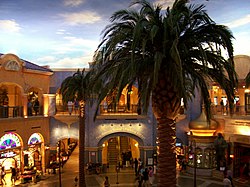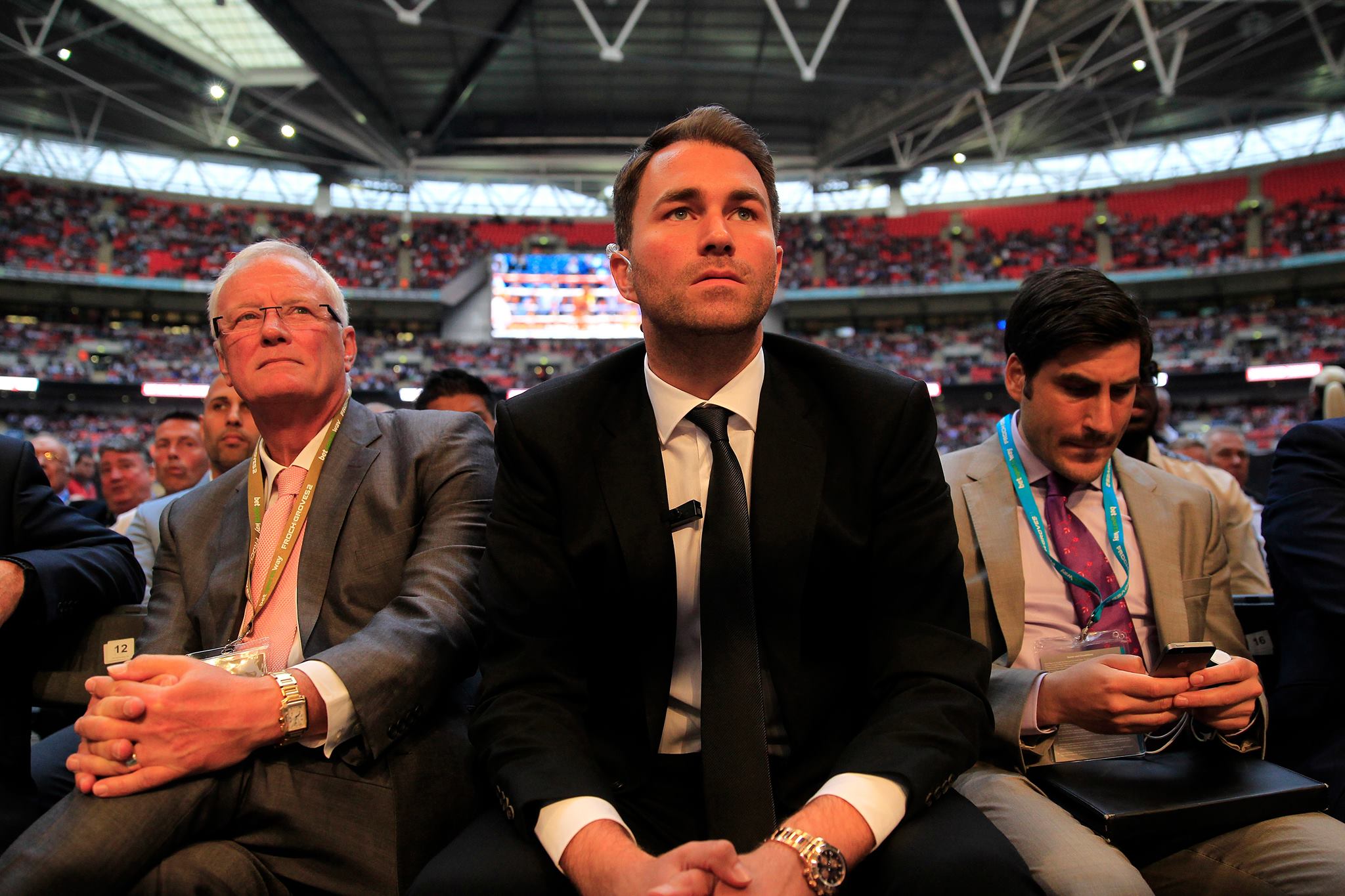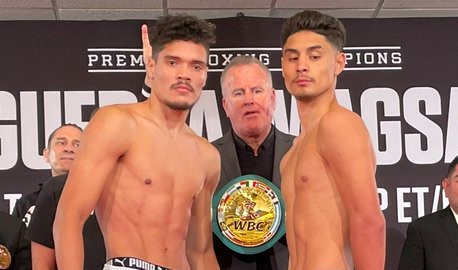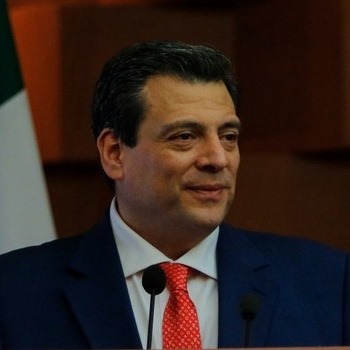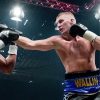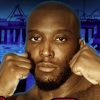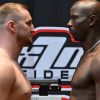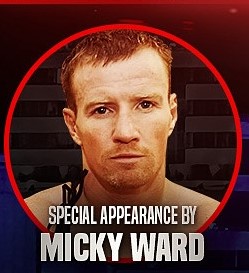by B.A. Cass
German Caicedo scanned the room, trying to pick out Juan Carlos Payano from the crowd of young, eager-to-impress Dominican fighters. Caicedo was there with his brother-in-law, Henry Rivalta, and Shannon Briggs, who along with training for his upcoming fight against Vitali Klitschko, had just started a small promotion company of his own. The Dominican Commissioner of Sports had coaxed Rivalta to travel to Santo Domingo to check out a group of promising former Olympians in need of management and promotion deals. Caicedo was there only in an advisory role; Rivalta wanted his eye to scout fighters that they could sign.

Photo Credit: Andy Samuelson / Premier Boxing Champions
Payano was known as the “Captain” of the group, and Briggs and Rivalta had really been talking him up to Caicedo. However, they had failed to mention his weight, and by the things they were saying, Caicedo expected a seven-foot tall, 300-pound heavyweight. No one who fit that description was in the gym, though. And so Caicedo eventually steered Briggs and Rivalta over to group of guys who were working out and asked them where he could find Payano.
“He’s not here,” they told him. “He lives two hours away from here. He couldn’t make it. He doesn’t have the money for the bus.”
They got him on the phone and Rivalta sent him the money for the bus, and then they waited.
A few hours later, Caicedo heard people saying, “Juan Carlos is here. Juan Carlos is here.”
“There was a huge crowd,” Caicedo recalls. “As you can imagine in these third-world countries, they all want to sign. So every boxer in the country was at this building wanting to sign with this new company with a former heavyweight champion running it.”
And as Caicedo looked on, waiting for a massive figure to emerge from the crowd, he felt someone yanking on his shirt. Caicedo glanced down.
A young man of 5’5” stood before him.
“I’m Juan Carlos,” the young man said.
“What, you?” Caicedo said.
“Yeah, I’m Juan Carlos.”
“You’re like a hundred pounds.”
“What’d you think?”
Caicedo told Payano what he had thought, and Payano started laughing. “No, no, no,” he said.
Payano had learned to be wary of managers and promoters. He had met many of them already. Payano recalls, “They all were pushing the same thing: We will make you Champ and make you rich!” The only reason Payano had shown up at all was that his friend told him that Rivalta seemed honest. Still, he was skeptical. “When I was on the bus to Santo Domingo to meet the promoters, who were signing fighters.” Payano recalls, “I thought to myself, ‘Here we go again.’” But then he spoke to Rivalta, and later to Briggs; it put him at ease to know that a fighter and former world champion was involved. Still, it wasn’t until he found time to talk with the no-nonsense Caicedo that the deal was sealed.
Payano told Caicedo, “The only way I will sign with this promotion company is if you sign me to a management deal and you train me yourself personally.”
Caicedo was hesitant; he was there in only an advisory role. But then he thought, “What the hell? I don’t have any other fighter except Shannon. Win, lose or draw, I’ll have some time on my hands. Let me take the leap.”
Caicedo ended up signing a few other guys there as well, including Claudio Marrero and another former Olympian who didn’t pan out and ended up moving back. He told them the same thing he told Payano: “I don’t have one dollar to give you. I have a facility back home that’s a gym. I can convert one or two of the offices into bedrooms, and I can train you like a mule. I will take care of every single shark that comes your way that tries to steer you in a direction that is not beneficial. I will manage you like my own children. That’s what I can promise you.”
Caicedo returned to his gym in Miami and converted an office into a master bedroom, where Juan Carlos lived for the next six and a half years. Under Caicedo’s close watch, Payano has become one of the best fighters in his weight division. For Caicedo, Payano’s shining moment came in 2014 when he beat Anselmo “Chemito” Moreno, the longest reigning bantamweight world champion of all time, to gain the WBA Super bantamweight title. “The doctors stopped the fight in the eighth round,” Caicedo explains, “but we were ahead on every single score card and were on our way to getting the knockout.” Next, came his first fight with Rau’shee Warren. It was a close, dirty fight, and Payano won by split decision.
Caicedo wishes he had let Payano simmer in the championship before sending him to face Rau’shee for the second time. “That second fight with Rau’shee, I knew what they wanted,” he says. “I know the business. It’s not a secret. They wanted this American, this three-time Olympian to be Champion, and they were willing to pay anything to make it happen. I always tell all my guys if you ever win championships—you know, because I got nothing but Cubans and Dominicans and very few Americans—I say you’re going to win a championship because we train like dogs here. But you’re not the champion who’s the celebrated champion. You’re going to be the champion who’s holding the belt for whoever else they want to make a champion. So you’re going to get the fights, but you’re not going to get the easy fights. Even if you become world champions, they’re not giving you the tune up bouts, not like Deontay Wilder’s who’s got 35 nobodies. They’re giving Payano dog-dog fights. They don’t see the money behind a Dominican, a Cuban, there’s no fan base. Payano falls in that category because he’s not a one punch knockout artist. And even though he’s exciting for TV, he doesn’t have a fan base. So, I get the business. I don’t lie to the fighters so that they understand what the severity of being a champion and anything but Puerto Rican, Mexcian, and American.”
Two weeks before his second fight with Rau’shee, Payano broke the floating rib under the arm pit in the lead position while sparing with Stephon Young. There was some contemplation of postponing the fight. But the 500,000 dollar purse was too much to pass up. “I’m having a really hard time catching my breath and recovering,” he told Caicedo between rounds. But that was just information he was giving Caicedo so that Caicedo knew how to adjust to what he was asking of him. “There was never any question about whether they would stop the fight,” Caicedo says. “He’s made it very clear that he’s the type of fighter that if his arm falls off in the ring, he’s going to pick it up and beat you with it.”
Payano lost his second bout against Rau’shee, ending his short reign as world champion, but his purse from that fight allowed him to bring his family to America.
“It’s a tough, tough, tough business,” Caicedo says, “even tougher when you’re protecting people. Because someway, somehow, you always have to sell out …somewhere. And sometimes it’s at the expense of the fighters. And I didn’t. I didn’t, and I don’t. I refuse to do that. I may not have the best reputation among promoters and some managers for that reason. I tell it like it is.”
But according to Payano, Caicedo did that and so much more: “He didn’t promise fame and fortune, simply hard work, honesty and to protect and keep us away from all the scumbags in this business.” He often tells Caicedo, “You promised to the letter exactly what you said six years ago, and I want to thank you for being a father figure to me and an honest and disciplined man.”
Tonight Caicedo will be in Payano’s corner yet again when he steps into the ring to face Alexis Santiago (21-4-1, 8 KOs) at Sam’s Town in Las Vegas, which will be aired on FS1 at 9 p.m. ET/6 p.m. PT.
“We expect a very good boxer,” Caicedo says of Santiago. “We expect a great counter puncher. He’s not your typical Mexican fighter. He’s not just going to come forward, take four licks to give his four licks. He’s a good boxer. He’s as good or better than Juan Carlos. But we’re ready. And quite frankly, Juan Carlos is pissed. He’s super pissed. He wants his titles back. From what he’s been performing like, Alexis Santiago’s in for a rough, rough night. He’s got to keep up with over 150 punches a round. That’s no easy feat.”
Even if Payano becomes a world champion again, he may never reach the million-dollar payday that many lesser fighters receive on a regular basis. But perhaps he’s okay with that. He always tells Caicedo, “You promised to the letter exactly what you said six years ago, and I want to thank you for being an honest and disciplined man.” Of course, Payano deserves to give himself some credit. After all, he had the patience and intelligence to see through the sleek promises that promoters and managers were making him—promises of money and dreams and castles and Ferraris. And he deserves credit for all that he has achieved, in and outside of the ring. And just think of what he has achieved. Seven years ago, he couldn’t scrape the money together for bus fare to get from La Vega to Santo Domingo, and now he owns a small three-bedroom home in Miami Gardens. Everyone in his family has green cards. They’re working on their citizenships, taking English classes, and his kids are in school. Achieving all this couldn’t have been an easy feat, either. Payano’s in an enviable position. After all, why did all those young men show up to the boxing gym that day back in 2010 to meet Rivalta? Maybe they weren’t just there for a chance at fame and boxing stardom. Maybe they were after something else, something closer to what Juan Carlos Payano now has.
Follow B.A. Cass on Twitter @WiththePunch


